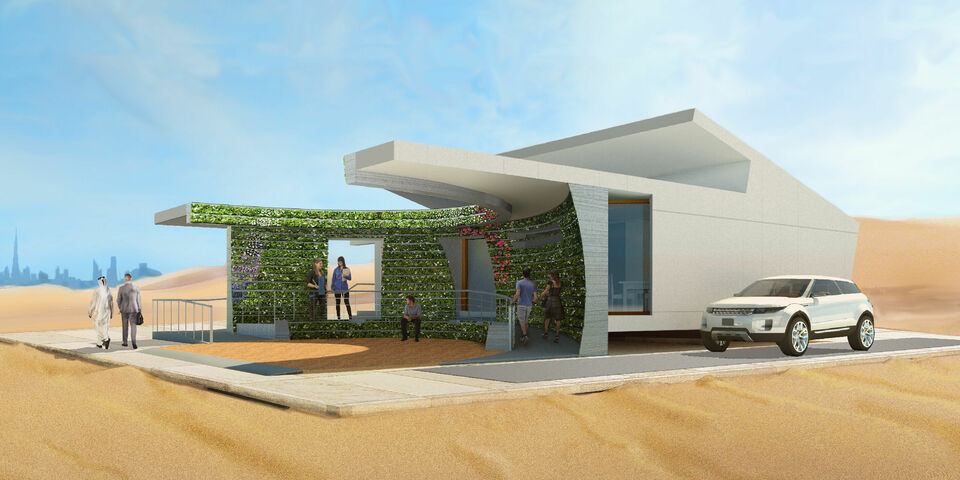VIRTUe to let student teams shack up during DTW
The TU/e student teams will present themselves en masse in early June during Dutch Technology Week in what is hoped is the world's most sustainable home, created by VIRTUe. This student team is building its submission for the Solar Decathlon Middle East 2018, to be held this coming fall in Dubai, on the university site by way of a trial run.
Next month the design of LINQ, as VIRTUe has dubbed its concept, should be ready, says team spokesperson Michiel Derikx. The students also hope to take receipt of the full set of components soon after that, so that they can start building their sustainable home on TU/e grounds in May. The exact location will be revealed in April, says Derikx.
Afterwards the home will be open to visitors June 4 through 9 during Dutch Technology Week. Those interested can meet the student teams representing TU/e, all of whom will be presenting themselves in and around the home. The vehicles of the various automotive teams will also be on show.
Apartment complex
VIRTUe's concept is based on a small apartment complex, designed partly with the many expats in Dubai in mind, who often return to their home countries after a few years. On the TU/e campus and later in Dubai the student team will build the top-floor apartment (naturally with solar panels on the roof); the complex as a whole will also be explained.
Derikx: “Thanks to the expats the city has become the international metropolis that it is today, but within that many smaller towns have also emerged - various neighborhoods, often linked by motorways, but not easily accessible. This has given rise to divisions between neighborhoods, as well as between income classes, with clear differences between, say, expats from India and from Europe. With our apartment complex, we want to connect people from different classes, and give old neighborhoods an upgrade.”
Read more below.
People to people, technology to technology, and people to technology; these are the three connections that VIRTUe is seeking to make with LINQ. At the heart of each apartment lies the same module (“a sort of little container”) in which all the technological systems that keep the home running, including the bathroom and kitchen, are brought together. A smart system enables the residents to see via an app how the home is 'performing' at all times. Additionally, an interactive clock in the lounge displays daily energy consumption. “It will prompt people to live with greater awareness,” believes architectural student Derikx.
Vertical garden
Other characteristic parts of the home are an innovative, natural air conditioning system that works on water vapor, and the “vertical garden” that weaves its way up through the entire apartment complex. In addition, LINQ uses direct current, unlike today's homes which use alternating current. Derikx explains: "Alternating current offers benefits only in the transport of electricity; in the generation and consumption of electricity direct current is used. Since the solar panels are right there on the roof, transport is minimal and the conversion from direct current to alternating current is unnecessary. By taking this step out of the chain, we can make the home a whole lot more sustainable.”
We aren't building just another detached home, but a genuine answer to a problem that Dubai is struggling with.
What chance the Eindhoven team has of winning is difficult to estimate, he feels. “Our concept is strong; we aren't building just another detached home, but a genuine answer to a problem that Dubai is struggling with. But when it comes to the actual building phase, we are seeing that some teams are ahead of us. And some teams have already participated in multiple Solar Decathlons.”




Discussion